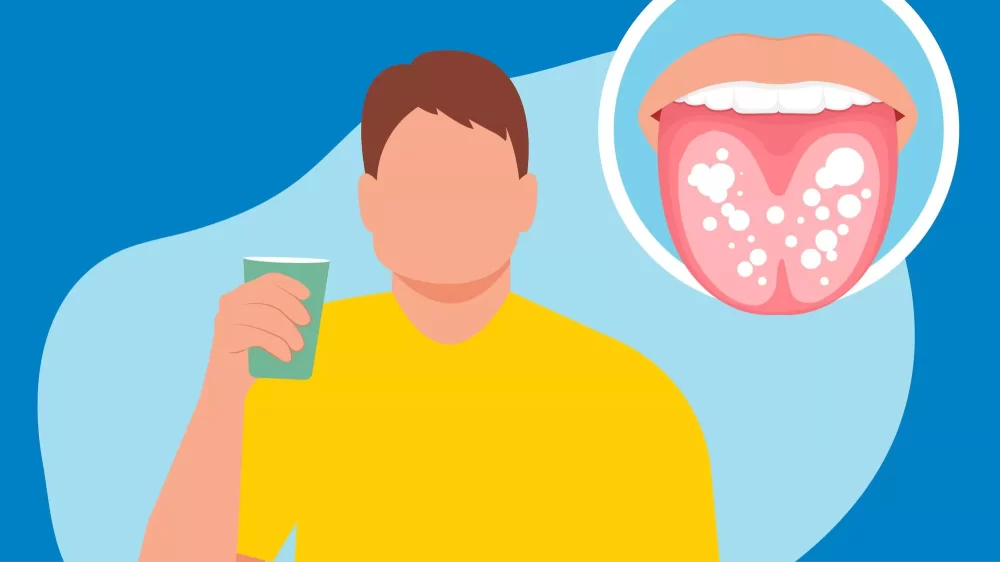
- Understanding Oral Thrush in Adults
- Natural Remedies for Oral Thrush
- Lifestyle and Diet Changes to Support Healing
- Real-Life Experience and Professional Advice
- When to See a Dentist or Doctor
Understanding Oral Thrush in Adults
Oral thrush is a fungal infection caused by the overgrowth of Candida yeast in the mouth. While commonly seen in infants, adults can also develop this condition, especially if their immune system is weakened or certain medications disrupt the natural balance of microbes. Adults with diabetes, those using inhaled corticosteroids, or people who wear dentures are more susceptible to this infection.
Recognizing the symptoms early is crucial for effective treatment. Typical signs include white patches on the tongue or inside the cheeks, soreness, redness, and sometimes a cottony feeling in the mouth. Some individuals may experience difficulty swallowing or a loss of taste. Understanding the root causes can help guide natural approaches to treatment and prevent recurrence.
The Biology Behind Oral Thrush
Candida is a fungus normally present in small amounts in the mouth, digestive tract, and skin. It generally coexists harmlessly with other microbes. However, when the natural microbial balance is disturbed — due to factors like antibiotics, stress, or poor oral hygiene — Candida can multiply excessively, leading to oral thrush.
In adults, a compromised immune system from illness, medications, or lifestyle can make this fungal overgrowth more likely. This knowledge emphasizes why addressing overall health is just as important as treating the symptoms.
Natural Remedies for Oral Thrush
When exploring how to treat oral thrush in adults naturally, it’s essential to consider remedies that are gentle yet effective, aiming to restore microbial balance and soothe irritation. Many people prefer natural approaches either as complementary treatments or for mild cases.
1. Probiotic Support
Probiotics, often called “good bacteria,” can help rebalance the oral and gut microbiome, making it harder for Candida to dominate. Consuming probiotic-rich foods like yogurt, kefir, or fermented vegetables can boost beneficial bacteria. Some studies suggest that probiotic supplements specifically formulated for oral health may reduce symptoms and support healing.
2. Coconut Oil Pulling
Oil pulling with coconut oil is an ancient practice believed to reduce harmful microbes in the mouth. Coconut oil contains lauric acid, which has antifungal properties. Swishing one tablespoon of coconut oil in your mouth for 10 to 15 minutes daily can help reduce fungal growth and promote oral hygiene.
3. Tea Tree Oil and Other Essential Oils
Tea tree oil is known for its antimicrobial effects. Diluted tea tree oil (never applied directly undiluted) can be used as a mouth rinse to combat Candida. Other essential oils like clove or oregano oil may also help, but it’s important to consult a healthcare professional before use to avoid irritation or allergic reactions.
4. Baking Soda Rinse
Baking soda can neutralize acidic environments where Candida thrives. Rinsing your mouth with a baking soda solution (1/2 teaspoon baking soda in a cup of warm water) several times a day can help restore pH balance and reduce fungal growth.
Lifestyle and Diet Changes to Support Healing
Natural treatment of oral thrush goes beyond topical remedies — it requires addressing lifestyle factors that encourage Candida overgrowth.
1. Reduce Sugar and Refined Carbs
Candida feeds on sugars and simple carbohydrates. Cutting back on sweets, sodas, white bread, and processed snacks starves the fungus, helping to limit its growth. Many patients report faster symptom relief after adjusting their diet.
2. Maintain Good Oral Hygiene
Regular brushing and flossing are essential. Dentures should be cleaned daily, and if you use inhalers, rinsing the mouth afterward can prevent fungal buildup. Staying hydrated also supports saliva production, which naturally protects against infection.
3. Manage Stress and Boost Immunity
Chronic stress weakens the immune system, giving Candida an advantage. Incorporating stress-reduction techniques like meditation, gentle exercise, or sufficient sleep can enhance your body’s defense and support recovery.
Real-Life Experience and Professional Advice
Jane, a 45-year-old teacher, shared her journey of treating oral thrush naturally. After recurring infections linked to her asthma inhaler use, she adopted a daily coconut oil pulling routine combined with probiotics and dietary changes. Within weeks, she noticed a significant reduction in symptoms without needing prescription antifungals.
Her story is not uncommon, and while natural treatments can be effective, it’s crucial to monitor progress carefully. Consulting a healthcare provider for diagnosis and tailored advice ensures the safest approach, especially for persistent or severe cases.
For those seeking trusted products and professional guidance, Dentistry Toothtruth offers specialized oral care solutions, including probiotics and natural oral hygiene products tailored for those dealing with oral thrush. Their expertise can help you find the right support on your healing journey.
When to See a Dentist or Doctor
Although natural remedies are helpful, some cases require professional intervention. If symptoms worsen, spread, or persist beyond two weeks, or if you experience pain or difficulty swallowing, seeing a healthcare professional is essential.
Additionally, people with underlying conditions like diabetes or immunodeficiency should be vigilant and seek timely treatment. A dentist or doctor can prescribe antifungal medications if necessary and help identify any contributing health issues.
Incorporating natural treatments as a complementary approach can improve outcomes, but never replace professional medical advice when it’s needed.







 Dr. Rice Laser Periodontics & Implants4.0 (254 review)
Dr. Rice Laser Periodontics & Implants4.0 (254 review) Polaris Dental Care4.0 (170 review)
Polaris Dental Care4.0 (170 review) Dr. David Newkirk - Cosmetic and General Dentistry5.0 (31 review)
Dr. David Newkirk - Cosmetic and General Dentistry5.0 (31 review) Red Oak Dentistry: Dr. Michael King4.0 (74 review)
Red Oak Dentistry: Dr. Michael King4.0 (74 review) Light Dental Studios of Maple Valley4.0 (37 review)
Light Dental Studios of Maple Valley4.0 (37 review) Coventry Family Dental4.0 (247 review)
Coventry Family Dental4.0 (247 review) The Importance of Oral Health Education During Pregnancy for a Healthy Pregnancy
The Importance of Oral Health Education During Pregnancy for a Healthy Pregnancy Best Tips for Brushing Your Teeth Properly for Healthy Gums: Essential Techniques for Oral Health
Best Tips for Brushing Your Teeth Properly for Healthy Gums: Essential Techniques for Oral Health Why Skipping Dental Checkups Can Lead to Bigger Oral Health Problems
Why Skipping Dental Checkups Can Lead to Bigger Oral Health Problems Advantages of Porcelain Dental Restorations
Advantages of Porcelain Dental Restorations How Can Diabetes Cause Tooth and Gum Problems? Preventing and Managing Oral Health Issues
How Can Diabetes Cause Tooth and Gum Problems? Preventing and Managing Oral Health Issues Healthy Habits for Promoting Good Oral Health and Hygiene: Tips for a Healthy Smile
Healthy Habits for Promoting Good Oral Health and Hygiene: Tips for a Healthy Smile